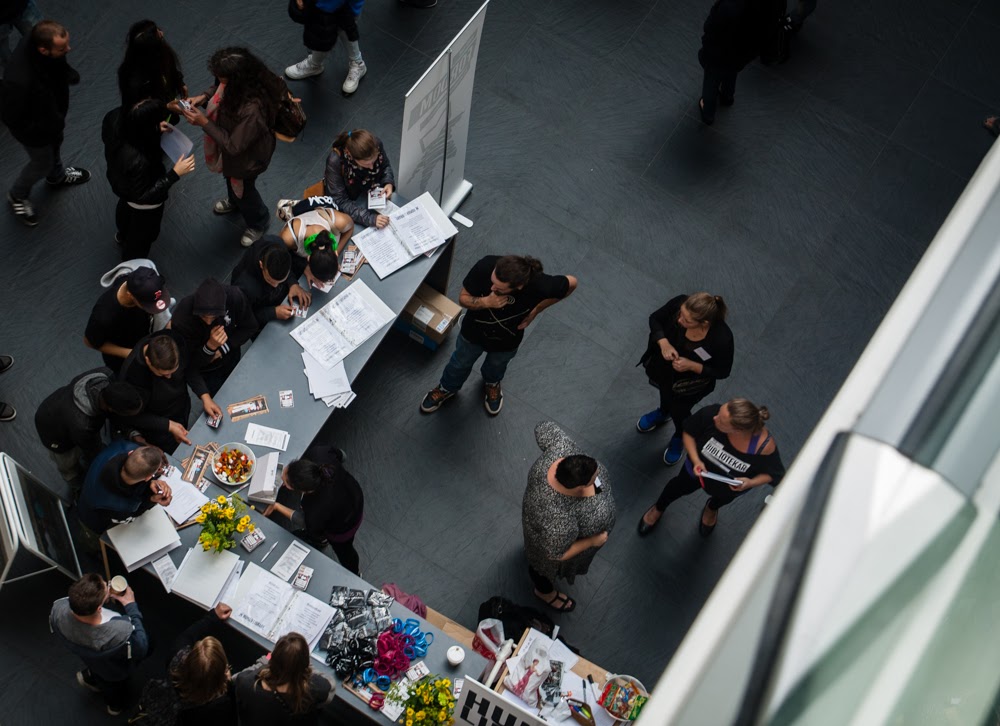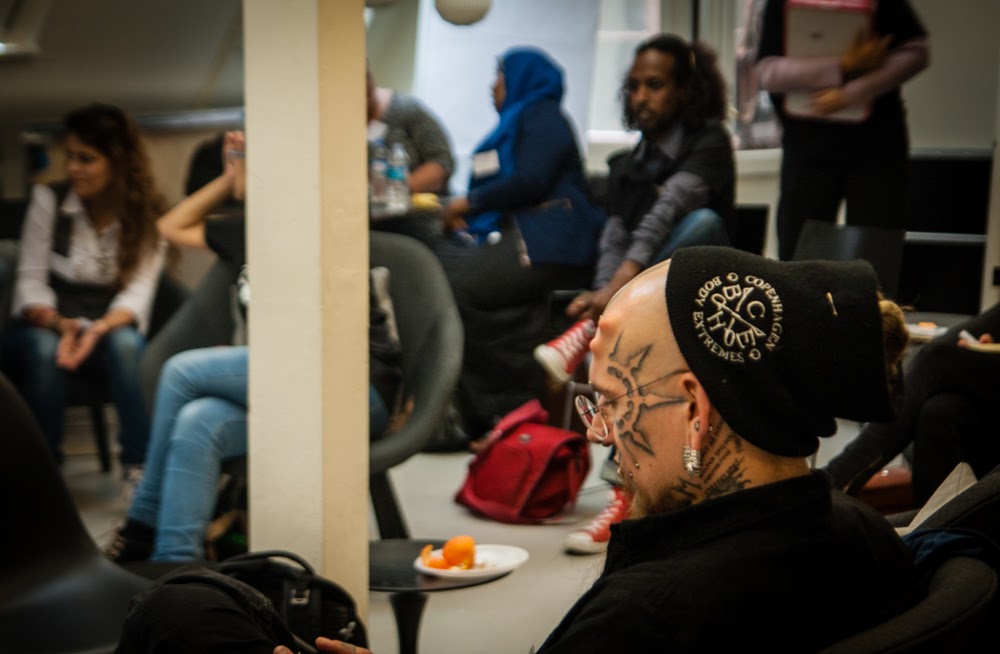Lending library has a ‘human’ touch
• November 11, 2016

A Muslim woman with her reader at Copenhagen Central Library. Photo: Supplied / Kristoffer Sutton, the Human Library
HIV+, Migrant and Refugee. They are some of the titles you can borrow at the Human Library, when it opens in Auckland this week.
The library works like any other. You borrow a title, read it and return it – in the same condition as borrowed, of course. The only difference is that the books available are real people, and in order to read them you have conversations with them.
One of the titles on loan is HIV+. His real name is Charlie Tredway, and he hopes to dispel the stigma around HIV.
“How you change public perception and how you fight ignorance is by living openly and discussing it. There is a lot of fear and misconceptions around HIV, and they are a barrier to HIV+ people having a normal life and a barrier to reducing transmission, said Mr Tredway.
The Human Library was developed in Copenhagen, Denmark in 2000 as a project for the Roskilde Festival – one of Europe’s largest music events. It has since spread across the world – from Norway to South Africa, Ecuador to Japan. The aim is to challenge prejudice, stigma and discrimination.

The Human Library at Copenhagen Central Library. Readers in front and library staff behind the counter. Photo: Supplied / Kristoffer Sutton, the Human Library
The upcoming Auckland Human Library is a collaboration between community organisation Splice and Auckland Central Library and will take place as part of the Festival for the Future.
Organiser Sandie Ritchie, who works with Splice, isn’t sure which title will be the bestseller, but she expects to be “very, very busy”.
“In our diverse city centre neighbourhood it’s often difficult for people to find opportunities to connect with each other. Talking is the only way to really gain an understanding of others especially those who may be stereotyped,” she said.
“The more we can understand each other, the better a place is to live. The Human Library is a way for people to talk in a secure space with people they don’t usually get a chance to talk to.”
Mr Tredway, who is also a community engagement officer for the New Zealand AIDS Foundation, hopes to be read by people who have never met someone with HIV.
“If you can reach five people and they tell five people, that chain event changes the discussion around HIV,” he said.

A 'book' relaxing in the book depot. Photo: Supplied / Kristoffer Sutton, the Human Library
In a 2014 New Zealand General Social Survey, 17.1 per cent said they had been discriminated against in some way in the past 12 months.
Margaret Wilson, a former Labour MP and a Waikato University professor who has conducted research in human rights, said the Human Library enables people to understand the perspective of one another.
“While the main form of communication is online, face to face meetings are still important.”
The Human Library will be at Festival for the Future in Aotea Centre, Auckland on September 24 and 25.


Kiwi journalists migrating from traditional media - a loss or a win for journalism?
Grace Symmans • September 3, 2024



Kiwi journalists migrating from traditional media - a loss or a win for journalism?
Grace Symmans • September 3, 2024



